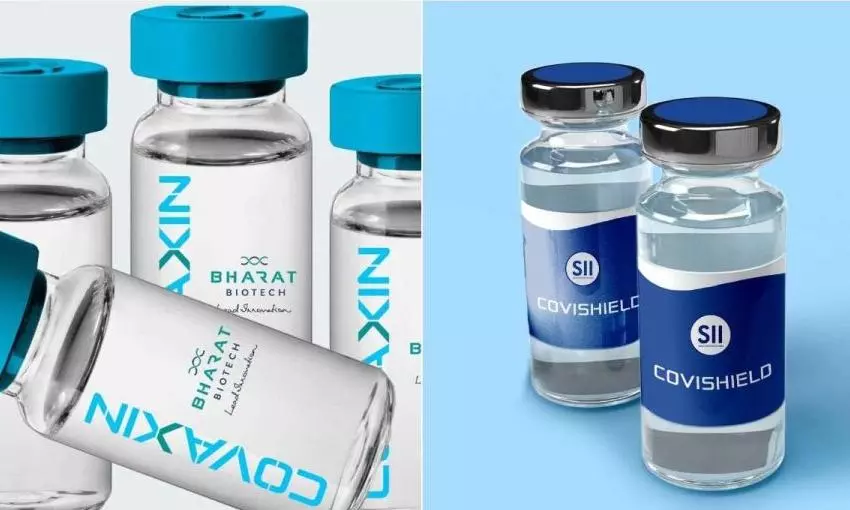
Covid vaccine: Covishield more effective than Covaxin, says Lancet report
Covishield found to elicit seroconversion rates of 98.3-100%; in the case of Covaxin, it reached over 90% only in participants vaccinated closer to Omicron wave

Among the two COVID-19 vaccines used to inoculate the Indian population after the outbreak of the pandemic, scientists have found Covishield to generate more immune response than Covaxin, according to the Lancet.
The two vaccines were rolled out in January 2021 and, till March 2023 around 2.2 billion doses were administered, including the first and second doses, followed by a booster dose. This was billed as one of the largest inoculation drives ever undertaken by the Indian government.
Two years after the pandemic subsided, though the spectre of its variants like Omicron is not over yet, a comparative study of the two vaccines conducted by a group of Indian scientists, headed by Mangaiarkarasi S Asokan of Bengaluru-based Jawaharlal Nehru Centre for Advanced Scientific Research, gives a good deal of insight into how the coronavirus responded to vaccines.
The study findings were published last month in the Lancet.
Vaccine-induced immune responses
The study, designed to explore vaccination-induced immune responses in both seronegative and seropositive participants, found Covishield to be more effective against the coronavirus. “In general, the data show that Covishield elicited immune responses of higher magnitude than Covaxin,” observed the study, titled Immunogenicity of SARS-CoV-2 vaccines BBV152 (COVAXIN®) and ChAdOx1 nCoV-19 (COVISHIELD) in seronegative and seropositive individuals in India: a multicentre, nonrandomised observational study.
The study, conducted between June 30, 2021 and January 28, 2022, enrolled 691 participants in the age group 18-45 years across four clinical sites in India. In this non-randomised and laboratory blinded study, participants received either two doses of Covaxin (four weeks apart) or two doses of Covishield (12 weeks apart) as laid out in the national vaccination policy.
Seroconversion and immunity
Covishield, an adenovirus vectored vaccine, elicited near-complete seroconversion – a term used to denote the time of exposure to a virus and the time the antibodies take to show up in blood – rates between 98.3 and 100 per cent in seronegative participants.
However, seroconversion in the case of Covaxin was more varied, reaching over 90 per cent only in participants who were vaccinated and whose samples were collected closer to the Omicron wave. For pre-Omicron participants, seroconversion for Covaxin was found much lower than the phase 2 trial.
Antibody count
In its second important outcome, the study found Covishield to have elicited a higher antibody count compared to Covaxin. The study, in a nutshell, found Covishield to be more effective in building immunity against coronavirus, particularly its deadly Delta variant, among the inoculated population compared to Covaxin.
Covaxin, India’s own arsenal against the deadly SARS-CoV-2 virus and its variants, was developed by Bharat Biotech in collaboration with Indian Council of Medical Research and its subsidiary the National Institute of Virology. Covishield, on the other hand, was produced by the Pune-based Serum Institute of India using master seed developed by Oxford University and AstraZeneca.
The study also identified eight primary studies comparing the immunogenicity of the Covaxin and Covishield after two doses.

